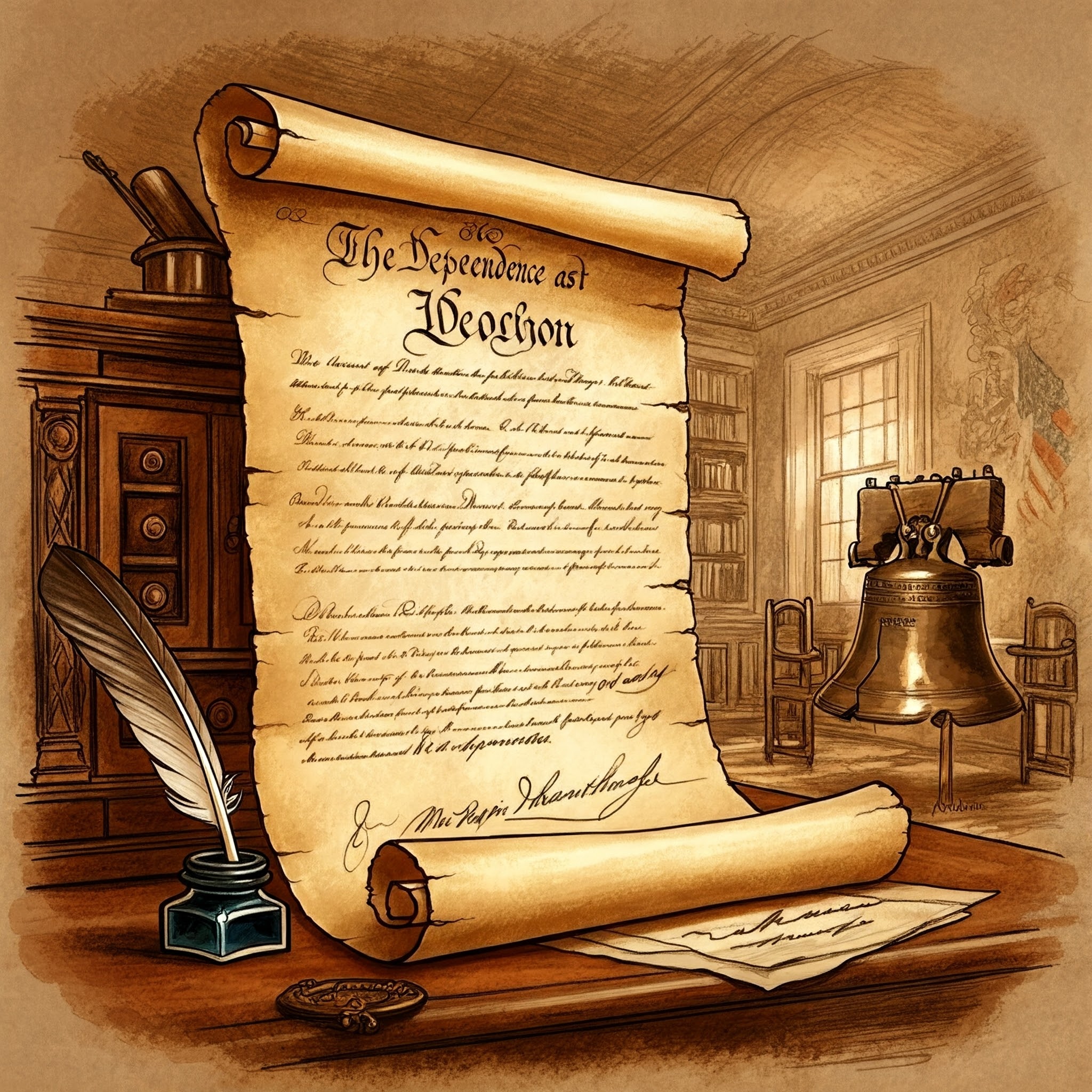Historic
Definition
Historic is an adjective that refers to something important or significant in history, often having lasting importance or being associated with notable events or periods.
Parts of Speech
- Adjective
Pronunciation
American English
- IPA Pronunciation: /hɪˈstɔːrɪk/
- Respelling: hi-STOR-ik
British English
- IPA Pronunciation: /hɪˈstɒrɪk/
- Respelling: hi-STOR-ik
Etymology
The word "historic" originates from the Greek word "historikos," meaning "narrative or related to history," derived from "historia," which means "inquiry or narrative." The term entered the English language through Latin and Old French in the late Middle Ages, taking on its modern sense of "notable in history" by the 17th century.
Derivatives
- Historically (adverb)
- Historical (adjective)
- Historicity (noun)
- Historian (noun)
- Historiography (noun)
Synonyms
- Significant
- Notable
- Memorable
Antonyms
- Ordinary
- Unremarkable
- None
Usage
The adjective "historic" is used to describe events, places, or objects of great importance in history. For example: "The signing of the treaty was a historic moment." It is often distinguished from "historical," which refers to anything related to history, not necessarily significant.
Related Terms
- History: The study or record of past events.
- Monument: A structure built to commemorate a historic event.
- Antiquity: The ancient past, especially before the Middle Ages.
Detailed Definitions
Adjective
- Of great importance in history: Refers to events, objects, or places that have a lasting impact on historical narratives.
- Example: "The Declaration of Independence is a historic document."
- Relating to or characteristic of history: Describes anything connected to past events, especially notable ones.
- Example: "The castle is a historic landmark."
historic



🇨🇳 Mandarin
- 历史性的 (lìshǐxìng de)
- IPA Pronunciation: /li˥˥ ʂɻ˩˧˥ ɕiŋ˥˩ tɤ˥˥/
- Respelling: lee-shrr-sheeng-duh
🇮🇳 Hindi
- ऐतिहासिक (Aitihāsik)
- IPA Pronunciation: /əɪt̪ɪɦaːsɪk/
- Respelling: ey-ti-haa-sik
🇪🇸 Spanish
- Histórico
- IPA Pronunciation: /isˈtoriko/
- Respelling: ees-TO-ree-ko
🇫🇷 French
- Historique
- IPA Pronunciation: /istɔʁik/
- Respelling: ee-sto-reek
🇸🇦 Modern Standard Arabic
- تاريخي (taarikhi)
- IPA Pronunciation: /tˤaːriːxiː/
- Respelling: ta-ree-khee
🇧🇩 Bengali
- ঐতিহাসিক (Aitihāsik)
- IPA Pronunciation: /ɔit̪ihɑsik/
- Respelling: oi-ti-ha-sik
🇷🇺 Russian
- исторический (istoricheskiy)
- IPA Pronunciation: /ɪstərˈit͡ɕɛskʲɪj/
- Respelling: is-to-ri-che-skiy
🇵🇹 Portuguese
- Histórico
- IPA Pronunciation: /iʃˈtɔɾiku/
- Respelling: eesh-TO-ree-koo
🇮🇩 Indonesian
- Bersejarah
- IPA Pronunciation: /bərsedʒarah/
- Respelling: ber-se-ja-rah
🇩🇪 German
- Historisch
- IPA Pronunciation: /hisˈtoːʁɪʃ/
- Respelling: his-TO-rish
🇯🇵 Japanese
- 歴史的な (Rekishi-tekina)
- IPA Pronunciation: /ɾek̚ʲiɕitekina/
- Respelling: re-ki-shi-te-ki-na
🇻🇳 Vietnamese
- Lịch sử
- IPA Pronunciation: /lit͡ʃ ʂu˧ˀ˨ʔ/
- Respelling: lich-su
🇰🇷 Korean
- 역사적인 (yeoksa-jeog-in)
- IPA Pronunciation: /jʌksʰadʑʌɡin/
- Respelling: yeok-sa-jeo-gin
🇹🇷 Turkish
- Tarihi
- IPA Pronunciation: /taɾihi/
- Respelling: ta-ri-hi
🇵🇰 Urdu
- تاریخی (Taarikhi)
- IPA Pronunciation: /t̪ɑːɾiːxiː/
- Respelling: ta-ri-khee





